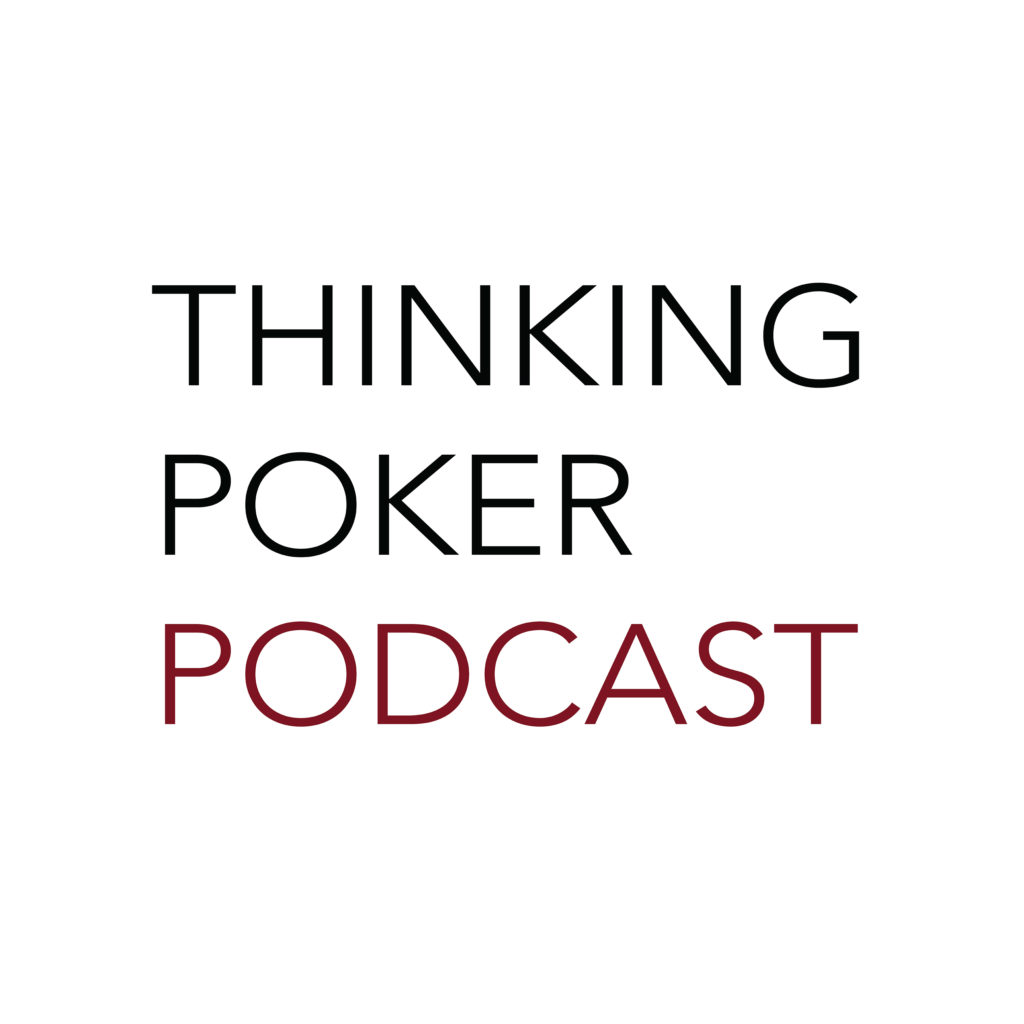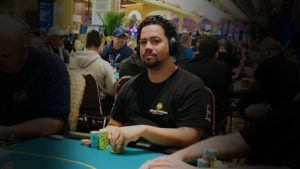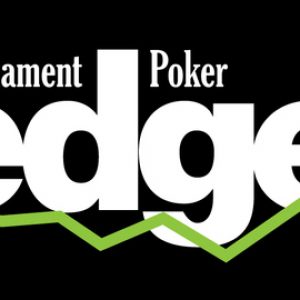As “The Poker Philosopher”, and in honor of one of my favorite non-poker blogs, I occasionally consider the ethical dimensions of a high-profile controversy in the poker community. Today, I consider a lawsuit brought on behalf of Ponzi scheme victims against players who allegedly won the fraudulently obtained money from the thief in a high-stakes poker game. Older editions of The Poker Ethicist are available in the archives.
CNN reports that,
“Celebrities who won big money in secret high-stakes poker games at Beverly Hills luxury hotels were paid with funds stolen from investors who had been lured into an illegal Ponzi scheme, a series of federal lawsuits contends.
Actors Tobey Maguire, Nick Cassavetes and Gabe Kaplan, along with professional poker player Dan Bilzerian, two nightclub owners and a Los Angeles lawyer are among at least 11 people being sued by a bankruptcy trustee.”
The lawsuit alleges that Bradley Ruderman fraudulently solicited millions of dollars in investments from at least 22 individuals and lost some of that money in an underground poker game played with the afore-mentioned celebrities as well as Matt Damon, Ben Affleck, and others. It seeks to recoup funds lost to these players so that they can be returned to Ruderman’s victims. Are the investor-victims ethically entitled to the return of these funds?
They are not. If the players who won money from Ruderman had no reason to believe that he was gambling with other people’s money, then they are entitled to their winnings. The simple proof of this is that had Ruderman won money in the game, losing players would not be entitled to collect their losses as part of the fund’s bankruptcy proceedings even if it became apparent that Ruderman had been playing with money that was not his own. A rule like this would enable the investors to freeroll Ruderman’s opponents in the game, entitling them pay nothing if Ruderman loses but to keep anything he wins. The fact that Ruderman probably would have never have returned any winnings to his investors is immaterial. The crime is his, and his victims are entitled to recompense from him, not from others who later received that money through no fault of their own.
We can draw an important distinction between this case and the attempts to repay investors who lost money to Bernie Madoff from the funds of those who unwittingly profited from the scheme. In that case, there is a reciprocal relationship between the “winners” and the “losers” in that both were investors with Madoff. Had the timing been different, the “winners” could easily have been “losers” themselves and entitled to recompense from beneficiaries of the scheme. There is no freeroll in this instance, no group that can win but never lose.
The lawsuit alleges that because the game was illegal under California law, “the player[s] had no legally enforceable contractual right to receive payment.” This may create a legal entitlement on the part of the investors, but it does not create an ethical one.
The only way in which the recipients of the funds could be ethically implicated is if they knew the money was fraudulently obtained. In that case, permitting them to keep the money would enable thieves to launder stolen money through poker games with friends, claiming that it is unrecoverable because lost fair and square. If the winners are not in on the impropriety, however, then there is no danger of this and thus no additional harm is done to Ruderman’s investors as a result of his playing poker with their stolen money. If he wins, they win (at least until he finds another way to squander their money), and if he loses, they lose. This time, they lost.
The real winner here is Gabe Kaplan, who is probably thrilled to see his name appearing in Hollywood gossip magazines alongside those of A-listers like Toby Maguire and Matt Damon.















15 thoughts on “The Poker Ethicist: Playing With Stolen Money”
I agree with everything you said.
Think about the ramifications if the winners were required to repay the duped investors. It would essentially kill high-stakes poker because who could know where their opponents’ money came from and how they got it. Rather than spending time and money trying to figure out the origins of the money, people would just do something else.
As for the argument that poker is illegal, the same argument above holds true for many different fields. Anytime someone knows they are getting the better end of a bargain, they would have to investigate and worry about whether the other party was using stolen funds so that they may have to repay the benefit of their bargain to the theft victims.
Unfortunately, someone has to bear the cost of theft. When the thief can’t bear it then it needs to be the party who dealt with the thief because they were in the best position to protect themselves.
Up to a point, lord copper.
As far as I can see, in this situation there are two possible cases – Hedge-guy wins at poker, in which case he profits, the poker players lose, and the investors keep their money (for now); or he loses, in which case the poker players win, hedgie gets arrested, and the investors are out of pocket.
If the money is irrecoverable from the poker game, then the investors have a negative freeroll, the poker players are playing in a sound game, and Hedgie is staking his freedom on the game. If you were to make the money recoverable, then the investors are safe regardless, the poker players have a negative freeroll, and Hedgie is staking his freedom in the game. By making the money irrecoverable, you are preserving the integrity of the poker game at the expense of that of the contract between investor & hedgie.
Now as you say:
q…A rule like this would enable the investors to freeroll Ruderman’s opponents in the game, entitling them pay nothing if Ruderman loses but to keep anything he wins. The fact that Ruderman probably would have never have returned any winnings to his investors is immaterial…/q
If the rule was that the cash that flowed through the poker game were to be _always_ recoverable, then yes, such a rule would enable the investors to cook up a situation whereby they share in hedgie’s winnings in the game, but don’t lose when he loses. But that would just be the reverse situation of your money laundering example, whereby the hedgie and poker players profit at the expense of the investors. So it’s not clear to me that making the money never recoverable (outside cases of obvious fraud) is really in any way ethically different from making it always recoverable (outside of cases of obvious fraud).
I think that there is a due diligence requirement on both the investors, regarding where they put their money to work, and on the poker players on who and where they play (aka, where they put their money to work). They are not necessarily the same, but they both exist. Then the question of whether the money is recoverable or not becomes a judgement call based on who did/did not make reasonable assumptions, how traceable/identifiable the money is, and a wealth of other contextual information.
It’s entirely possible that you place a higher burden of scrutiny on the investors than the people in the poker game, and thus you deem the money irrecoverable in this case. However, this is not an ethical case and even then poker players are not absolved from the responsibility of making some reasonable investigations in to who they are playing (outside of a casino, where the house bears that responsibility).
I don’t see why making the money irrecoverable gives the investors a negative freeroll? The key distinction is that for the poker players to freeroll the investors, they have to be in on the scheme, and at that point I would say it’s clearly unethical. But if they unwittingly play with the thief, and he loses without dumping money to them or anything, then I don’t see where the freeroll is. Whereas if this lawsuit succeeds the investors have freerolled the poker players without even trying or intending to.
I agree that there’s some sort of “due diligence” standard for poker players to consider the possibility that they are playing against stolen money. I think the burden of proof should be on the plaintiff to prove that there was some red flag that the poker players ignored, though. If they had no reason to think that Ruderman was anything other than a successful investor who sucked at poker, then I think they have an ethical claim to the money.
Re: the Investor’s negative freeroll.
The point is that the investors can never profit from the situation as a whole – they either get their original money back and the hedgie gets to keep the profits, or the cash disappears into the game and doesn’t come back. If the money gets returned from the game, yes the poker players got freerolled, but not by the investors – they can make nothing on the deal bar not losing their money. This is the mirror image of the scenario where the money is not recoverable wherein the investors get freerolled. I think it’s a mistake to start the analysis of the game _after_ the money has been stolen – perhaps that is where we differ?
The scenario is almost exactly symmetrical, with the poker players and the investors both potential victims of the man in the middle. Neither has a freeroll at the expense of the other without either colluding with hedge fund guy, or the hedge fund guy deciding to act as if a collusive agreement exists when it doesn’t (e.g. dumping into the game without the other players being aware of it).
What about the following scenario, which is essentially identically, albeit chronologically reversed: Hedgie turns up to his regular game and doesn’t have any money with him today. He blows off a million and arranges to pay up later. He goes and takes some of his investors’ money (which is lying around the office for some reason), and hands it over. The police find out. Should the investors get their money back? If the police arrive just as the money has been handed over? A week later? A year?
I do agree that from what little i know of this case it is very likely that the players had no reason to suspect that a rich hedge fund manager was playing with anything other than his own money. But equally, did the investors have any reason to suspect that their money was being defrauded? To be honest, based on little knowledge i think it is likely that the money should not be returned, but I don’t think the freeroll argument makes the case.
No love for Gabe? Good post, seems clear, for syndication could shorten to: “They are not.”
A fundamental tenet of our entire Anglo-American legal system is that “a thief cant rightfully pass title” – meaning that; on its face – I would agree with the assertion that the money should be recoverable.
Look at it this way: If some guy crawled through your window, stole your Picasso (let’s make it personal – insert your most prized and valuable possession) and then walked down to Hollywood and put that into the pot, there would be absolutely no doubt under the law (or ethically, in my view) that the painting still belonged to you, the original owner.
The fact that we are dealing with cash makes it a bit more interesting – if we are to take the position that the winnings are recoverable, then why not take the position that every other use of cash by Ruderman is recoverable – sue his dry cleaner, phone company, mortgage lender, on-line poker training site, etc. to recover the cash that he used there…
Shorty the problem with your Picasso analogy is that Picasso’s are not fungible. There is no way for the owner to recover the painting except for retrieving the original, where a large portion of its value is derived from its uniqueness. Money on the other hand is not unique (the definition of fungible). If I was a poker coach to the ponzi scheme manager and he paid me 200$ for my labour, I would keep the money and it would still be owed by him to the people he owed money to. What happened at the poker table is a similar transaction, there are no goods to be returned, it is an agreement between individual economic actors. That agreement isn’t voided by the nature of the goods or services exchanged. So in the Picasso case the people who bought their painting would be owed back the money they paid the thief for it. In the case of other activities just substitute the word money for Picasso in the previous sentence.
Example of the fungibility problem that Gareth mentions:
Nick, Gabe, Toby, Dan and Andrew sit down in a cash game with Ruderman (BTW – what a perfect name for a complete asshole). Everyone starts with $100k. At the end of the session, Ruderman is busto and everyone else is up exactly $20k each.
Does Andrew owe $20k to the plaintiff?
Well, suppose the session went this way:
Hand 1: Ruderman wins $60k from Toby.
Hand 2: Andrew wins $60k from Ruderman.
Rest of evening: Andrew never wins another pot and bleeds off $40k.
Andrew could just argue that the money he won was never part of the stolen money because Ruderman won it from Toby.
The point being that any attempt to determine how much of a player’s winnings are from a particular player in a cash game that lasts more than a few hands would require arbitrary and capricious definitions of “ownership” of the money during a poker game. Even if every pot were tracked, you’d still get into the issue of whether the money you won in a particular pot “belonged” to the immediate loser, or to someone who lost the money to him, and so on down the chain.
This is like law school all over again. 😉
How can fungibility be the criterion that determines who is legally or ethically entitled to the money? (legally and ethically dont always equal the same thing of course)
Let’s suppose it is not Picasso, but a rare baseball card, or a less rare but valuable baseball card, or an IPAD, or a gift certificate from SBUX, etc? Where is the “fungibility” line on this slope? Cash only?
And lets suppose the cash were specifically traceable, that changes your view of the result? For example, the thief dropped a brick of marked bills into the pot? Or in my example, what if I could trace my exact stolen bills into the ponzi scheme and through the poker game into Toby’s hands – I want those back just like I want my Picasso and if fungibility is the criterion, I should.
I agree with Gareth’s point that the fact that there is an agreement among economic actors involving an exchange of value means that the poker coach, poker game, dry cleaning and utility bill payment all ought to be treated the same way. That is is the crux of the legal/ethical problem. In my view, this doesn’t necessarily mean that the poker players get to keep the money; it could mean that the dry cleaner and others should owe the money back too. (And does your view change if rather than using cash for these transactions, they were using stolen IPADS as currency?)
It is VERY well established (and ethical in my view) that if you steal a car, and then sell it to me, the original owner can reclaim the car and I am out the money I gave to you (I can of course sue you to collect and try to get you sent to jail too). The cash poker game exchange of value is more difficult to to trace/enforce, but not fundamentally any different.
Andrew, do you have any different opinion if, instead of a poker game where Toby won $300K, it was an investment transaction with one of the ponzi schemer’s companies where he earned 300K? Is that a “reciprocal relationship”? Where is your “reciprocal relationship” line? That specific Ponzi scheme? what if he had two Ponzi schemes? And a real estate fraud on the side? Or a chip dumping scheme? you get the point..
Is the determining factor the specific CONTEXT where you, as the innocent downstream party, engages with the thief? Or should the determining factor simply be that you are dealing with a thief; and that sucks for Toby. A pretty compelling argument can be made that it is the latter.
Ok. What if the thief played a freezeout for 300k with Toby? And the thief bought into the freezeout with a Picasso worth 300k? Then, Toby wins the Picasso and when the gig is up, the Picasso is owed to the original owners, but the thief certainly still owes Toby 300k. And why would there be a preference in assets owed, both Toby and the Picasso owners are owed 300k. This example can make some use of Andrew’s point, that if Toby wasn’t on his no limit game that day, made some terrible hero call, and lost the freezeout, then he would be out of 300k, totally legitimately.
In order to argue that the Picasso owners are due their assets in advance of Toby’s debt being settled (much less him having to be his own advocate), you have to argue for a stipulation that the resolution of an illegal monetary interaction must take precedence over a legal interaction. It seems to me that the resolution of both should be independent. Toby is owed 300k no matter what happens with the Picasso owners and the owners are owed a probably awesome but potentially rubbish painting regardless of the timeline of Toby’s claim.
Actually it may be an important fact that in this case the poker game was illegal (albeit a misdemeanor that the police have said they have no intention of acting on). A lawyer friend of mine tells me there have been similar cases where gambling losses to legitimate casinos were recovered, and that seems crazy to me.
Ah I forgot/didn’t think of this. Yeah so I guess the case makes a bit more sense in that context, at least under the assumption that home games are illegal. I guess I don’t live in the land of milk, honey, and freedom that is the US so didn’t consider how illegal poker is. Be interesting to see the result.
This poker game is analogous to Ruderman having used the money to purchase Greek bonds.
If he had purchased Greek bonds there would an obligation of every European tax payer to pay much more tax so that Greek bonds retain their value, but no obligation on those who profited from selling the bonds. Thus the poker players are not obliged to cover losses, perhaps the citizens of LA will bail the investors out?
I think what confounds our ethical instincts when thinking about the Picasso is that it seems more obviously stolen. For me a key point is whether the other players had any reason to think that they were playing with, and thereby aiding, a thief. Someone trying to wager a Picasso in a poker game ought to raise some red flags in a way that hedge fund manager splashing around hundreds of thousands of dollars would not.
Also, to follow that example, suppose a thief steals a Picasso and sells it but is caught before he has a chance to hide the money. Does the original owner of the Picasso get the painting back plus the money? Because that’s essentially what’s happening here. We all know that if Ruderman wins in the game and later loses assets somewhere else, the people who lost money to him wouldn’t be in a position to recover it.
I think Gareth argues the point very well that at the very least the victims of Ruderman’s crime don’t have an ethical claim to Ruderman’s money above and beyond what the poker players have.
Andrew,
My experience as an observer (but fortunately not a particpant or victim) of hedge fund fraud leads me to doubt your pragmatism will come to fruition.
If we put ourselves in the position of the poker players, under the assumption they had no knowledge of the deception, we can accept their actions as ethical. If we put ourselves in the position of Ruderman, we can easily question his ethics. But that is not the comparison. A judge is going to balance the actions of the poker players and their situation against those of the investors in Ruderman’s venture.
I think most judges would side with the investors over the poker players in this case. When the system cannot punish the actual perpetrator, it often reaches for a surrogate, instead of leaving the punishment undistributed.
I agree with you on the ethics, but I think a judge will it difficult to let poker players keep their winnings (even legitimate winnings) in the face of fraud victims.
Comments are closed.